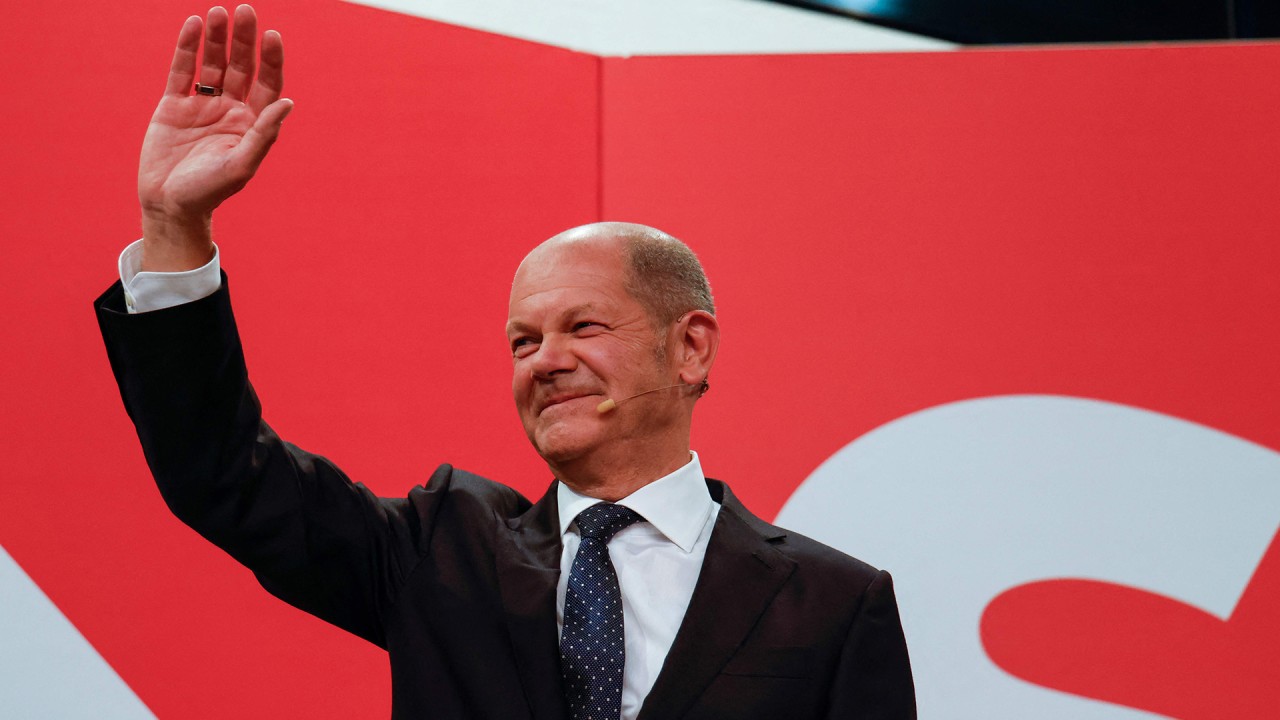
Next German leader should put aside ideological differences to work with China, says ambassador
- Wu Ken tells state media that Germany will be an important partner no matter who forms the next government
- Ambassador also praised Chancellor Angela Merkel for ‘open mind’ towards China
In an interview with state-owned Xinhua News Agency published by the embassy, Wu Ken, the Chinese ambassador in Germany, urged the next chancellor to adopt a “positive, pragmatic and cooperative policy”.
He said: “Regardless of which combination of parties is in power in Germany, China will continue to regard Germany as an important partner and maintain close dialogue and cooperation with the new government, parliament and all parties.
Who is Olaf Scholz, Germany’s most likely next chancellor?
“In addressing global challenges requires more trust and cooperation in the world, China and Germany should work together.”
The centre-left Social Democratic Party and Merkel’s centre-right alliance of the Christian Democratic Union and Christian Social Union (CDU-CSU), are now vying to form a coalition with the smaller parties after the SDP’s narrow victory in last week’s election.
The two most likely partners, the Greens and liberal Free Democrats, have both called for a tougher policy towards China.

03:11
Germany’s Social Democrats win election, chancellor candidate Scholz celebrated by his supporters
Wu praised Merkel in the interview, describing her “a politician with a long-term strategic vision and a focus on dialogue and communication”.
“What struck me most about Chancellor Merkel was her willingness to get to know and understand China with an open mind,” he said.
“She didn’t understand China at the beginning, but instead of clinging to political prejudices and jumping to conclusions based on assumptions, as some European politicians do, she has tried to learn more about and understand China.”
Bilateral ties significantly advanced under Merkel, who has advocated cooperation and close commercial ties.
Will it be business as usual for China and Germany as Berlin coalition looms?
The two sides have been holding regular meetings since 2011 and in 2014, during President Xi Jinping’s visit to Berlin, the relationship was upgraded to an “all-round strategic partnership”, the highest among China’s diplomatic ties with the West.
Beijing said the patrol was an attempt to “provoke incidents”.

He said there was room for cooperation in fields such as new energy vehicles, innovative manufacturing, green development and digital economies, but the two sides need to overcome ideological differences.
“The key is to respect each other, to seek common ground,” he added.

